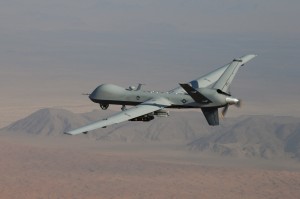Envisioning Technology | Envisioning emerging technology for 2012 and beyond
http://envisioningtech.com/
Accurate representation of world issues is crucial
The evolution of geopolitics is cyclical. Powers rise, fall and shift. Changes occur in every generation in an unending ballet. However, the period between 1989 and 1991 was unique in that a long cycle of human history spanning hundreds of years ended, and with it a shorter cycle also came to a close. The world is still reverberating from the events of that period.
On Dec. 25, 1991, an epoch ended. On that day the Soviet Union collapsed, and for the first time in almost 500 years no European power was a global power, meaning no European state integrated economic, military and political power on a global scale. What began in 1492 with Europe smashing its way into the world and creating a global imperial system had ended. For five centuries, one European power or another had dominated the world, whether Portugal, Spain, France, England or the Soviet Union. Even the lesser European powers at the time had some degree of global influence.
After 1991 the only global power left was the United States, which produced about 25 percent of the world's gross domestic product (GDP) each year and dominated the oceans. Never before had the United States been the dominant global power. Prior to World War II, American power had been growing from its place at the margins of the international system, but it was emerging on a multipolar stage. After World War II, it found itself in a bipolar world, facing off with the Soviet Union in a struggle in which American victory was hardly a foregone conclusion.
The United States has been the unchallenged global power for 20 years, but its ascendancy has left it off-balance for most of this time, and imbalance has been the fundamental characteristic of the global system in the past generation. Unprepared institutionally or psychologically for its position, the United States has swung from an excessive optimism in the 1990s that held that significant conflict was at an end to the wars against militant Islam after 9/11, wars that the United States could not avoid but also could not integrate into a multilayered global strategy. When the only global power becomes obsessed with a single region, the entire world is unbalanced. Imbalance remains the defining characteristic of the global system today.
http://walt.foreignpolicy.com/posts/2012/02/16/xi_jipings_overhyped_visit
First, as a good realist, I think that the basic state of Sino-American relations will be driven more by balances of power and configurations of interest than by the personalities of individual leaders. As I've noted before, if China continues to grow more powerful, Bejing and Washington will view each other with an increasingly wary eye and are likely to find more issues about which to conflict. A serious security competition -- especially in East Asia -- will be likely (which does not mean that war is inevitable or even likely, by the way). Again assuming China's continued ascent, I'm guessing this will occur no matter who is in power in each country.
No one seriously denies that the state has a role to play in economic life. The question is what that role should be and how it can be performed in ways that simultaneously enhance economic efficiency and minimize the kind of rent-seeking behavior -- "corruption" in all its shapes and forms -- that tends to arise wherever the public and private sectors meet.
We are all state capitalists now -- and we have been for over a century, ever since the modern state began its steady growth in the late 19th century, when Adolph Wagner first formulated his law of rising state expenditures. But there are myriad forms of state capitalism, from the enlightened autocracy of Singapore to the dysfunctional tyranny of Zimbabwe, from the egalitarian nanny state of Denmark to the individualist's paradise that is Ron Paul's Texas.
The real contest of our time is not between a state-capitalist China and a market-capitalist America, with Europe somewhere in the middle. It is a contest that goes on within all three regions as we all struggle to strike the right balance between the economic institutions that generate wealth and the political institutions that regulate and redistribute it.
The character of this century -- whether it is "post-American," Chinese, or something none of us yet expects -- will be determined by which political system gets that balance right.
 |
| Picture Credit: penguin.com |
 |
| Picture Credit: operationbrokensilence.org |
The US military has positioned many drone bases “offshore,” making it easier for drones to cross nation-state boundaries. It has also increased its CIA backed special operations force, which often uses drones. The merge of special operations forces with drone technology has hidden US military operations from public scrutiny. Allowing US drones to cross boundaries is a step towards establishing a free reigning and literally dehumanized US military empire.
http://www.globalpolicy.org/nations-a-states/general-analysis-on-states-and-their-future/51257-offshore-everywhere-how-drones-special-operations-forces-and-the-us-navy-plan-to-end-national-sovereignty-as-we-know-it.html?itemid=id#708